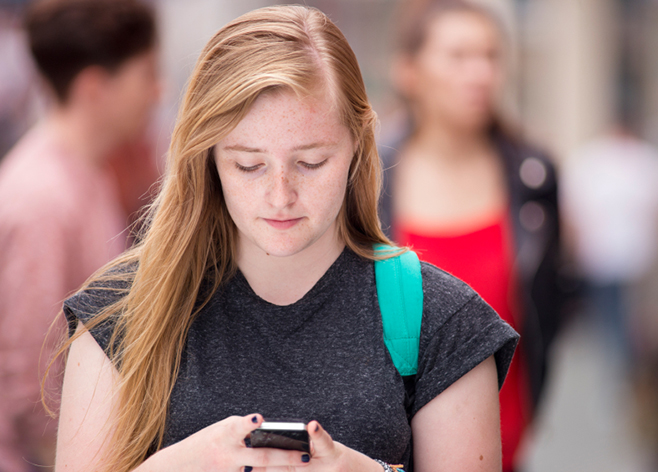Georgia health officials launched a new mobile app last month that offers free and confidential access to people suffering from mental illness, substance abuse and other issues.
The My GCAL app, which works on Apple and Android phones, caters to younger Georgians who are more comfortable sending texts than picking up the phone.
It’s run by the Georgia Crisis and Access Line (GCAL), which has long operated a full-time hotline for people in need of mental health treatment. But officials worry that they’re missing some Georgians, particularly those under 25, who would rather chat online.
This free app helps Georgians confronting a mental health crisis. Downloadable to Apple and Android smartphones, the My GCAL app connects via text and chat with the confidential Georgia Crisis and Access Line. The hotline is now staffed 24 hours a day with counselors and clinical professionals.
Teenagers prefer to text instead of calling. They also may be in a crisis situation where they can’t call. This just makes the crisis hotline more accessible, particularly to the younger population.
Staffers at the center field about 700 to 1,000 calls a day, according to the Department of Behavioral Health & Developmental Disabilities. Commissioner Judy Fitzgerald says, “It’s for people who are struggling and those with friends who are struggling, in addition to a source for urgent care.
Is there a crisis going on, or is someone under threat? Or is someone feeling sad or being bullied? Responders are there for any of those conversations that are acute in the minds of young people who don’t know who to talk to.”
Governor Brian Kemp called the My GCAL app an “innovative tool” to address what parents, students and educators have convinced him is a growing mental health crisis in schools. His budget this year includes increased funding for intervention and school security measures.
Anyone in Georgia can contact GCAL for help for themselves or on behalf of someone else at 800-715-4225 or via the app. Callers in crisis can speak with live clinicians trained in de-escalation and, when needed, mobile crisis response teams can be dispatched. Information specialists also can provide referrals for treatment in a caller’s area.
This article originally appeared in the March issue of the EAST COBBER magazine, on page 42. Click here to view the digital edition.







